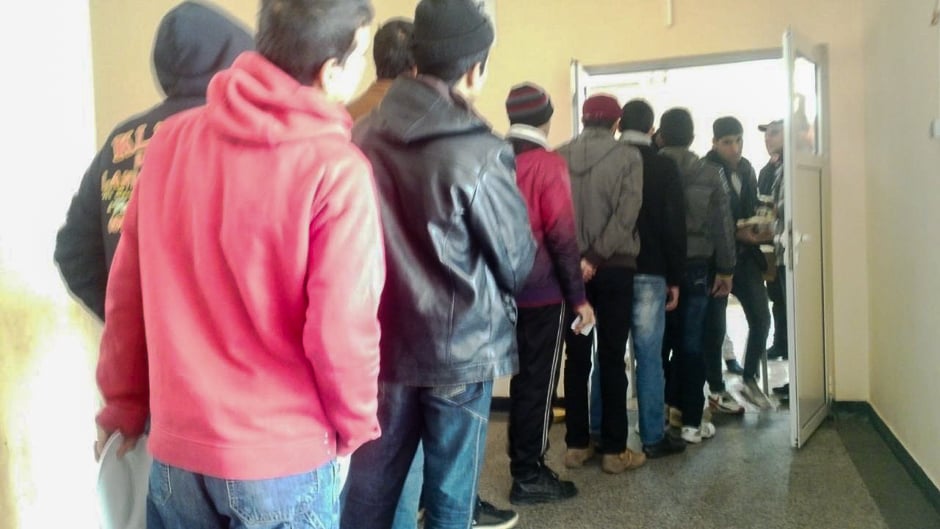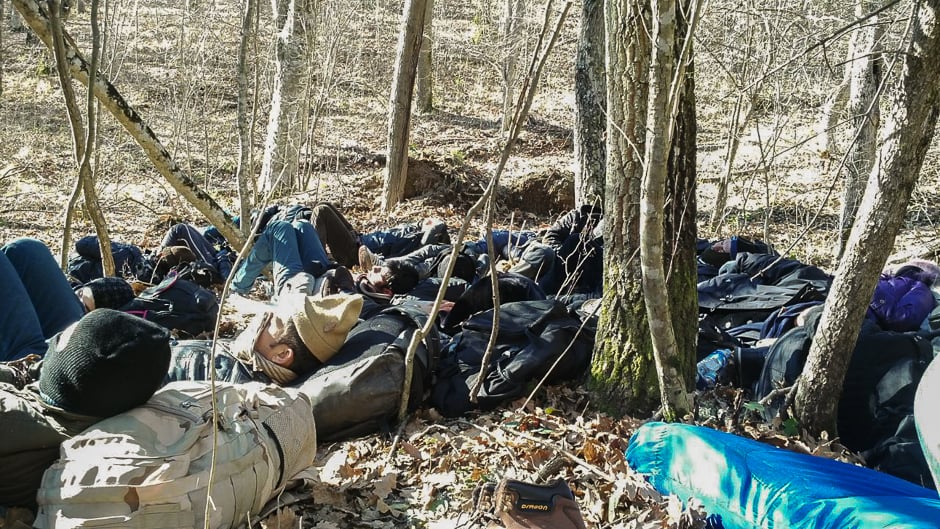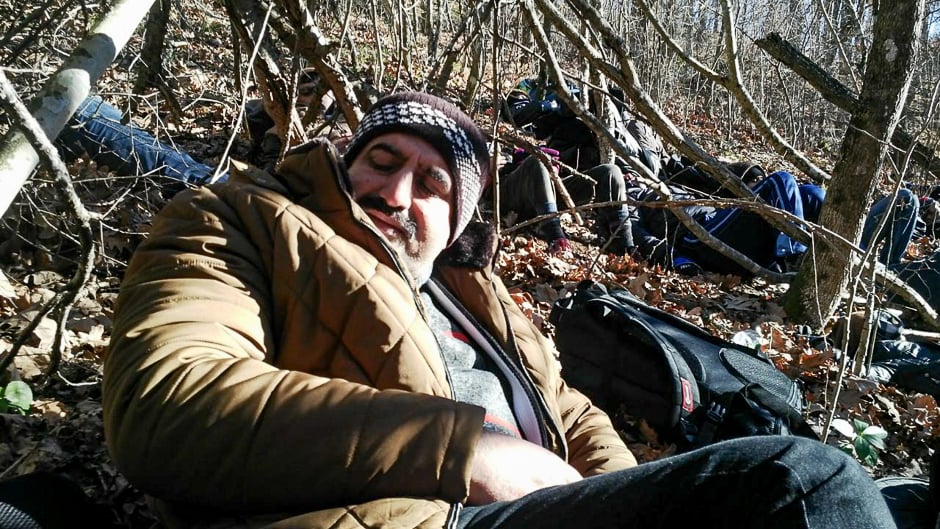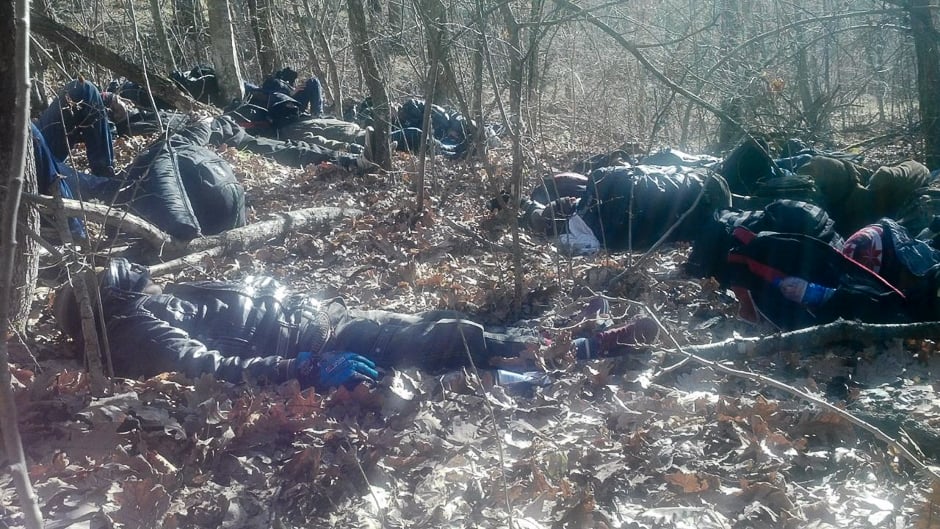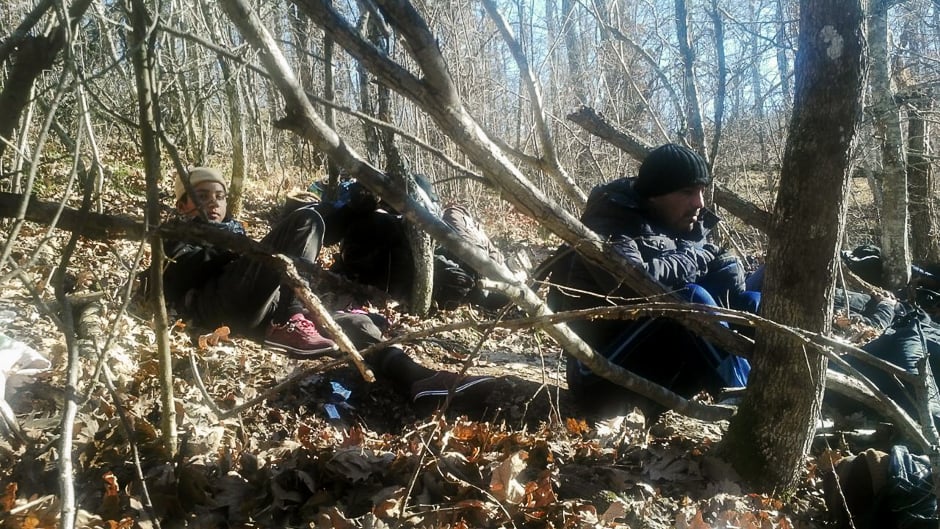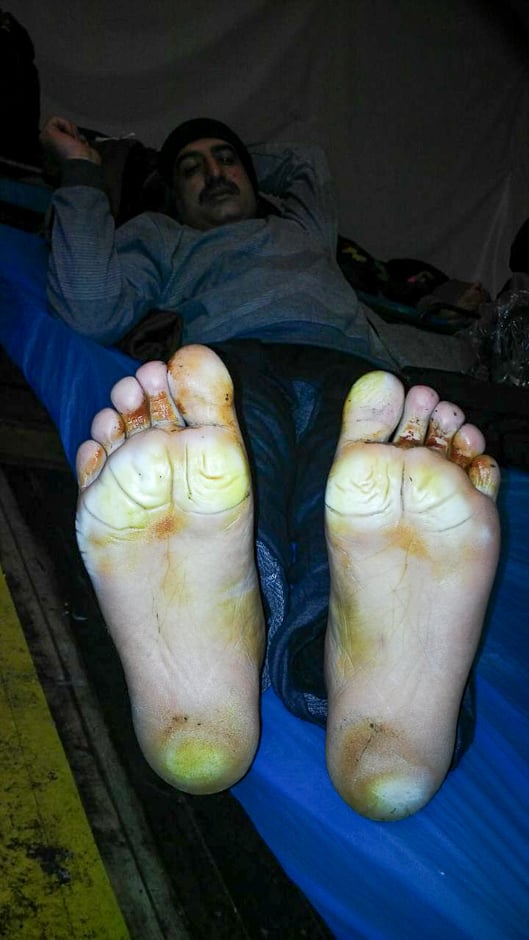Mission Europe
'Donkeys' and 'dunkers' fuel Punjab trafficking trade
“Everyone has a price” – Trafficker
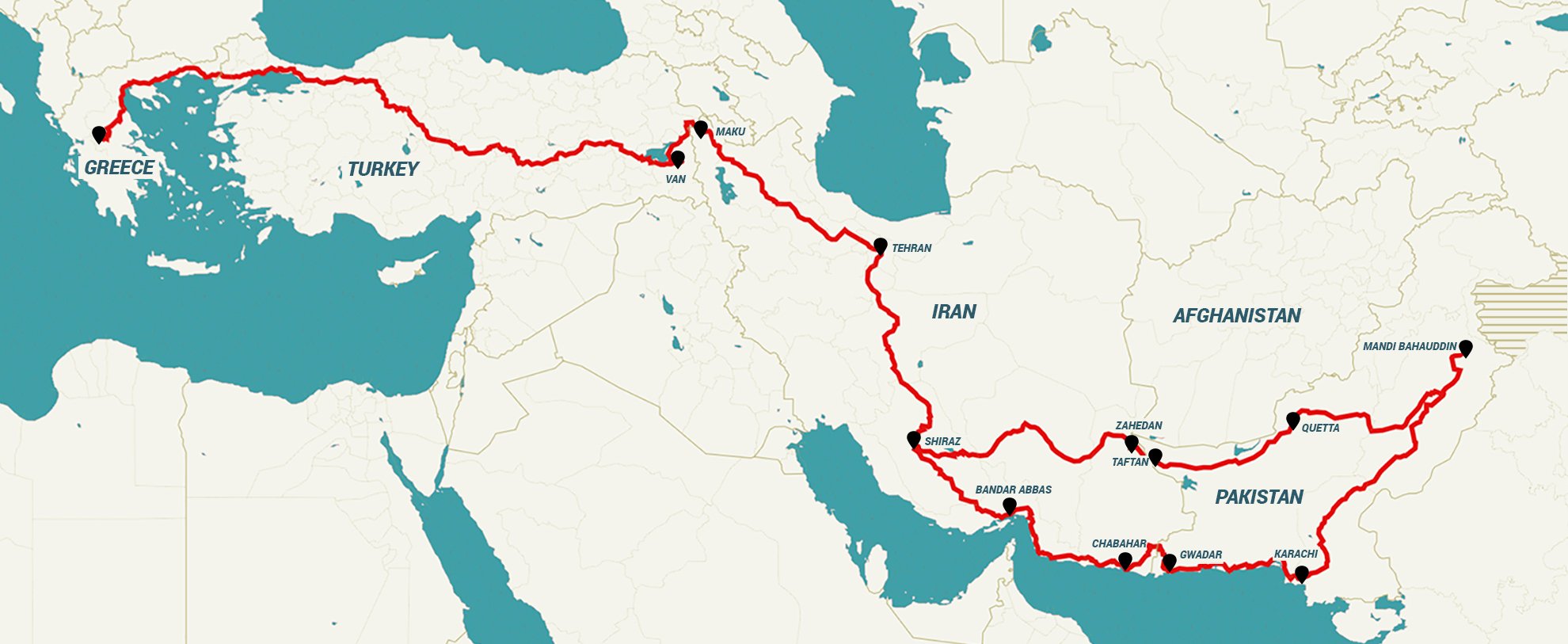
Map shows two routes taken by migrants starting in Pakistan and ending in Greece
The journey entails braving unforgiving weather, unfriendly terrain, chance of torture and the very real possibility of death. The passage to Europe primarily hinges on border control, weather and agent machinations among other factors. Both, the young and the elderly can expect to make it over a month or two if fortune smiles.
‘Donkeys’ and ‘dunkers’
The term ‘donkey’ is used to refer to aspiring migrants. Those in the business of facilitating such individuals are colloquially called ‘dunkers’. In the Punjab’s Mandi Bahauddin, Gujranwala and Gujrat districts, infamous trafficking centres, locals say the lexicon is representative of the appalling treatment meted out to migrants as they make their way to Europe across Pakistan, Iran and Turkey.
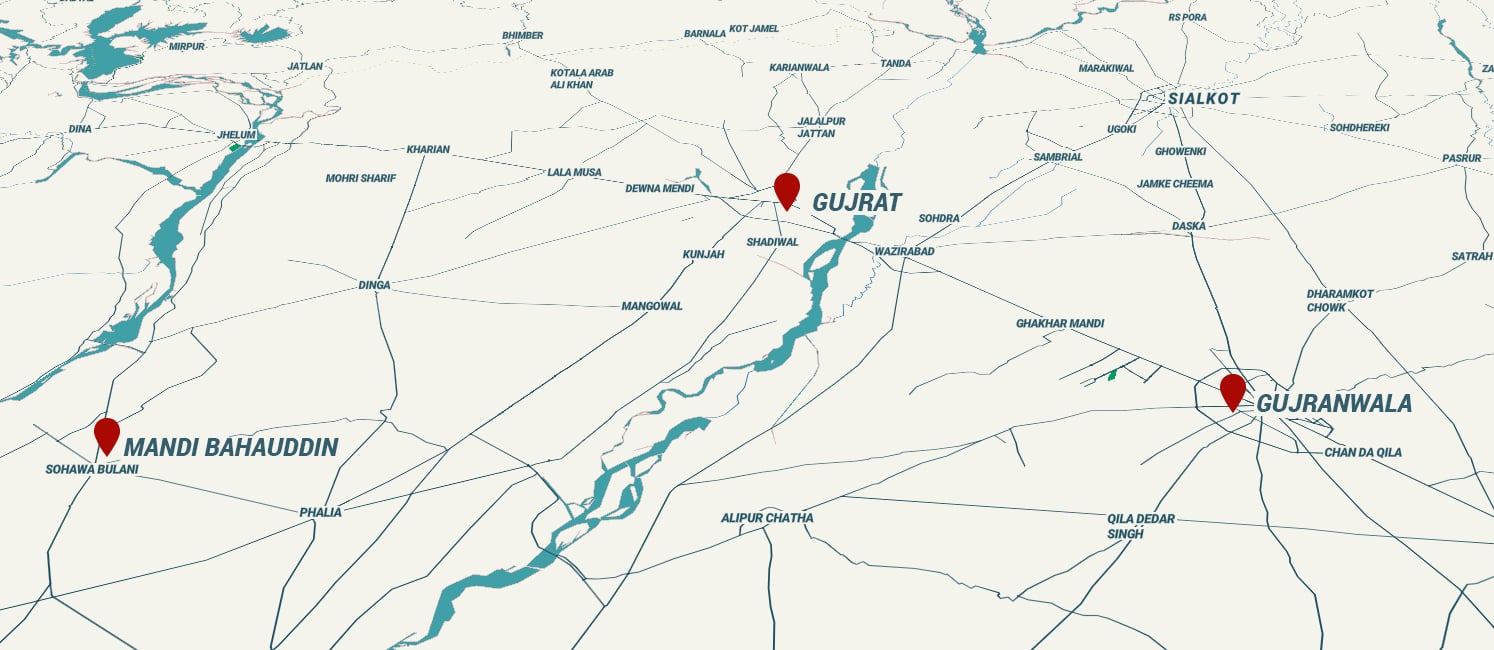
Punjab’s Mandi Bahauddin, Gujranwala and Gujrat districts are infamous trafficking centres

The understanding is unwritten but understood. Payments are made in instalments over the journey. Most travel light. Some currency, a mobile phone and a few clothes are all they possess.
There are two routes. The shorter comes with added risks and a higher price tag. The longer involves navigating treacherous terrain by foot for as long as 12 hours per spell. The former commences in the Punjab and leads to Karachi. Migrants are then ferried to Gwadar on buses. Baloch across the Iran-Pakistan border facilitate onward movement. The latter involves reaching Tehran via Quetta, an experienced ‘dunker’ told The Express Tribune.
Iran: Passing off as pilgrims

Migrants enter Iranian territory in groups using vehicles provided by traffickers. Most terrain is desolate. There’s little chance of encountering security personnel there, a trafficker cognisant of the route said.
Near the Iranian port city of Chabahar, migrants are divided into posses and each Baloch ‘dunker’ is responsible for 20 to 25 migrants. At this juncture, ‘donkeys’ are instructed to contact their families.
The ‘business’ is truly international. It rests on trust and coordination. Codenames are employed to prevent untoward situations, another trafficker said.

Traversing Iran presents a formidable challenge, a trafficker said. In Pakistan, it is relatively easy to pay off security officials, he said. Once in Chabahar, migrants use taxis or private vehicles to escape detection. Similarly, trucks travelling from the city to other metropolitan areas are also employed to traffic migrants.

“We stopped at a check post after crossing into Iran. The driver tried speaking to those present. He returned looking dejected and opted for an alternate route. The guards then resorted to aerial firing. They let us proceed after we pleaded again,” migrant Sohail Ilyas*, who has used the route twice, told The Express Tribune.
Most use the coastal highway to reach Bandar Abbas using different vehicles. “It is sheer luck. We pass ourselves off as pilgrims,” Mukhtar Khan*, another migrant, said. From the port city, migrants proceed to the border city of Maku via Shiraz and Tehran.
As they evade arrest, ‘donkeys’ wait for ‘signals’ from successive ‘dunkers’ before making their next move. They have no option but to stay put in the event of no instructions being received or police being alerted to alien presence.
Ilyas recalls how he once remained holed up in a warehouse owned by an Iranian trafficker for a little under one month. “We survived on spices, water and stale bread. There were infrequent altercations with Bangladeshi migrants too. It was one of the most harrowing experiences of my life,” he said.
Turkey: Such a long journey
Both, traffickers and migrants concur on how hard it is to get to Turkey. After being green-lighted, they make their way across the border in trucks carrying cargo. A trafficker narrated how he was travelling on a truck crammed with migrants when they had a close call. “The driver tried to cut the lane at a check post. Soon, we were being pursued. Out of the blue, he parked the truck in a house with a massive garage and the gate behind closed. Those pursuing us couldn’t keep up.”
Another trafficker said movements are well-planned and come with myriad backup plans. “Every migrant carries a price. No one in the trade wants to squander their cut,” he said.
The physical toll exacted on people trying to cross into Turkey exacerbates migrants’ woes. A few hundred thousand rupees procure a three to five-hour-long journey. A 12-hour trek across rugged terrain awaits those who cannot. The landscape has claimed many migrants’ lives. Some lose their bearings after taking a break. Others are rendered incapable of keeping up due to injury.
Photos taken by migrants during their journey from Pakistan to Greece
Many proceed to Van in Turkey after crossing the border. First instalments are cleared at this juncture. It is in Van that deals are cracked to reach Greece. This is chiefly dependent on who cuts the best bargain with Turks. Some Pakistanis permanently settled in the city are also engaged in the ‘business’.
While there is greater freedom of movement for migrants in Turkey compared to Iran, instant deportation follows arrest. Illegal Pakistani migrants have not had to serve prison time since Pervez Musharraf ascended to power, traffickers said.
According to Frontex – the European Border and Coast Guard Agency – people smuggling has developed into an important industry in Turkey, with networks active not just in Istanbul but also across Izmir, Edirne and Ankara. The nationalities of people smugglers vary, frequently mirroring those of their clients. Traffickers said migrants are charged between €2,200 and €2,500 on reaching Greece.
Hello Europe
Small inflatable boats are used to ferry migrants from Turkey to Greece. Tanveer Chaudhary*, a migrant, told off a trafficker after having to wait over three days for one. He said they finally departed for Greece on the fourth day. Chaudhry said they lied low over the first half of the journey to avoid being detected.
Depending on one’s destiny, imprisonment, deportation or a ‘fairy tale life’ await post landfall. Most rely on contacts to find work as they wait for migrants to be registered in the hope of obtaining temporary and later, permanent stay.
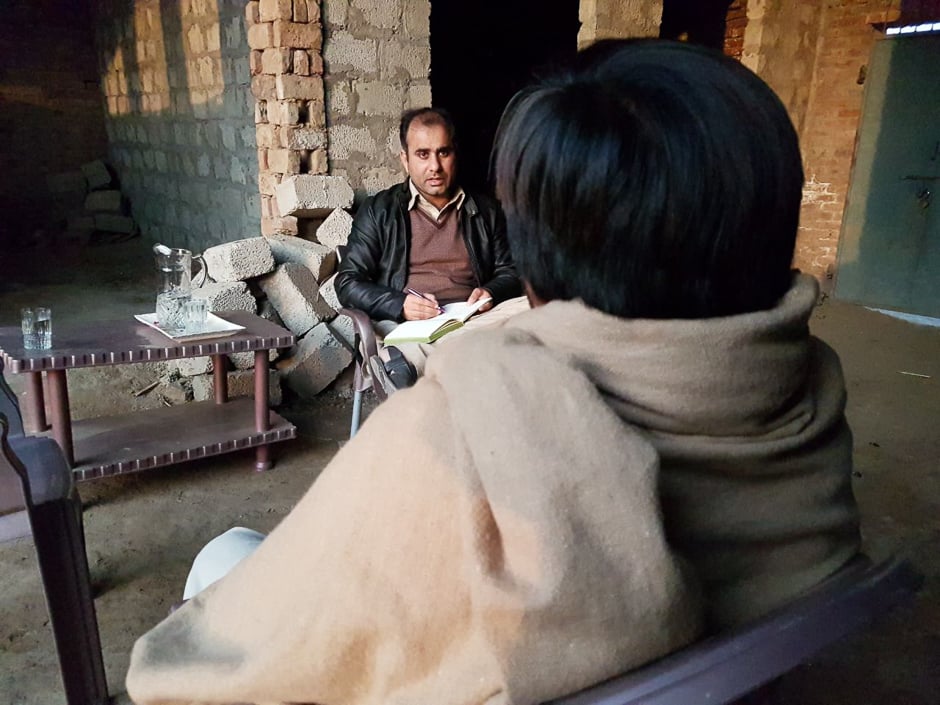
Trafficker Mukhtiar Ahmed said it was relatively easier to do so before those fleeing conflict in the Middle East started flocking to Europe in droves. “Initially, policies were rather flexible. Now, Greece, France and the United Kingdom are particularly tough.”
He said Pakistani migrants typically found low-paying jobs across the agriculture and hospitality industries. They earn around €15 to €20 per day. Ahmed said many prefer to relocate to Italy and other Mediterranean countries in the wake of the Greek financial crisis.
A floundering FIA
The Federal Investigation Agency (FIA) is responsible for curbing trafficking. A ‘dedicated’ unit has been established on this account. An inter-agency taskforce has also been constituted to check the flow of migrants into Iran.
The FIA rued the lack of effective coordination between pertinent departments and agencies when it came to eradicating trafficking in a report available with The Express Tribune. The document stated the need became pressing in the wake of the 2012 Turbat carnage.
In addition to prosecuting deportees, the FIA also maintains a database of those involved in the trade. The individuals are also listed in a Red Book of Most-Wanted Human Traffickers. Many profiles lack pivotal information and suffer from poor picture quality. The latest edition available on the agency website dates back to 2016.
An agency official posted in the Punjab passed the buck on complainants. He said they barely possessed any information. The official said most were clueless when it came to individuals being hired and wired money to. He said it was virtually impossible to ensure quality standards as vital information remained elusive.
The official said the document could not be regularly updated as prosecuting suspects took time. “It is a tedious job. Names and details are inserted once accused have been declared offenders. Profiles are updated as information became available,” he said.
An FIA report available with The Express Tribune stressed the need for effective legislation to curb trafficking. Presently, there is no law explicitly criminalising people smuggling. In 2013, the agency prepared a draft of a bill aimed at tackling trafficking. Despite securing the Ministry of Interior’s approval, nothing was done to present it before parliament. The agency tried propelling the bill forward in vain again after the Turbat carnage.
The Emigration Ordinance, 1979 provides precious little to curb trafficking in addition to not defining the activity as a crime. The pertinent Act clauses – “imprisonment or fine” – are routinely exploited by those accused, according to the aforementioned document.
An official told The Express Tribune on the condition of anonymity that the Ministry of Interior had its hands full with legislation on security. No one really tried to push the draft, he said.
The report goes on to state that complainants routinely retract statements against those accused when it comes to legal recourse. “Most submit statements in favour of the accused once they are produced before court,” the document read. They walk away as free individuals despite plenty of evidence to the contrary.
In addition to legal impediments, institutional woes also hamper the agency’s ability to eradicate trafficking. In a report presented before the Supreme Court pertaining a people smuggling case, the FIA listed manpower, infrastructure and institutional capacity woes when it came to ‘handling’ such cases.
Easy money
Most traffickers appeared unperturbed when enquired on the FIA, confident in their ability to cheat the system using money. “The agency only springs into action when compelled by senior functionaries, courts or tragedy,” a trafficker said. The FIA only goes after small fish. The sharks are let off following the receipt of a “fee”. Everyone has a price. It could be anything from Rs200,000 to four million,” he added.
FIA Punjab Director Usman Anwar said a cursory check of the department’s performance would suffice to show how such allegations were unsubstantiated. “We are doing our best with whatever little we have,” he said.
Airport Security Force personnel are also infamous for pestering erstwhile ‘donkeys’. “An ASF official stopped me as I was departing from Benazir Bhutto International Airport. He claimed there was some glitch in my documents after leafing through them. The official then offered to ‘remedy’ the problem for Rs300,000,” Gulzar Rafique*, a migrant settled in Greece for six years, told The Express Tribune.
An ASF official declined to comment on the claims. “We respect the media but we do not speak to journalists,” he said before hanging up.

